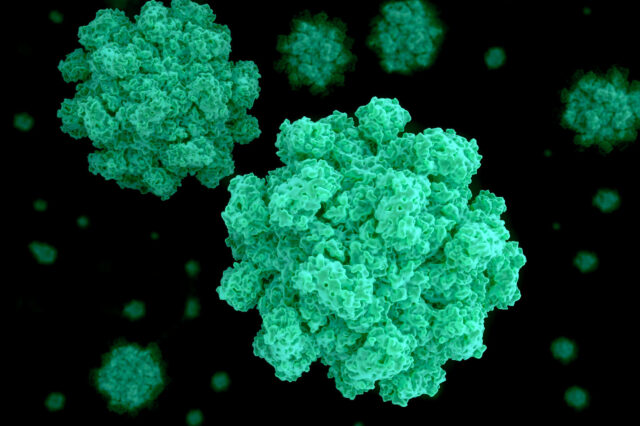Severity of norovirus linked to gut microbes, UF Health researchers find

For cruise ship passengers, the highly contagious norovirus has ruined many a trip with vomiting and diarrhea. Now, a study led by a University of Florida Health researcher has found that the severity of a norovirus infection is related to gut microbes and the virus’s location within the intestine.
The findings are a potential avenue toward future therapies for the now-untreatable norovirus. There are 685 million cases a year worldwide including 50,000 fatalities and 200 million in children under age 5, according to the Centers for Disease Control and Prevention. The findings by Stephanie Karst, Ph.D., a professor in the UF College of Medicine’s department of molecular genetics and microbiology, and her collaborators were published Nov. 25 in the journal Nature Microbiology.
In studies using mice, the researchers found that gut bacteria in the upper small intestine blocked or inhibited the norovirus. In the lower small intestine, however, gut bacteria helped the virus flourish. The differences in norovirus potency were traced to digestive aids known as bile acids. As the composition of bile acids change throughout the intestine, they influence the severity of the norovirus infection, the researchers noted.
This complex interaction may explain why some people are severely affected by the norovirus while others show little or no symptoms. Next, Karst said, the researchers want to study how the gut environment might be altered to prevent norovirus altogether.
Collaborators included researchers at the University of Michigan, Yale University School of Medicine and the Washington University School of Medicine in St. Louis. The National Institutes of Health, the Global Probiotics Council, the University of Michigan and the Burroughs Wellcome Fund provided research funding.
For the full research findings, visit https://www.nature.com/articles/s41564-019-0602-7.
About the author
